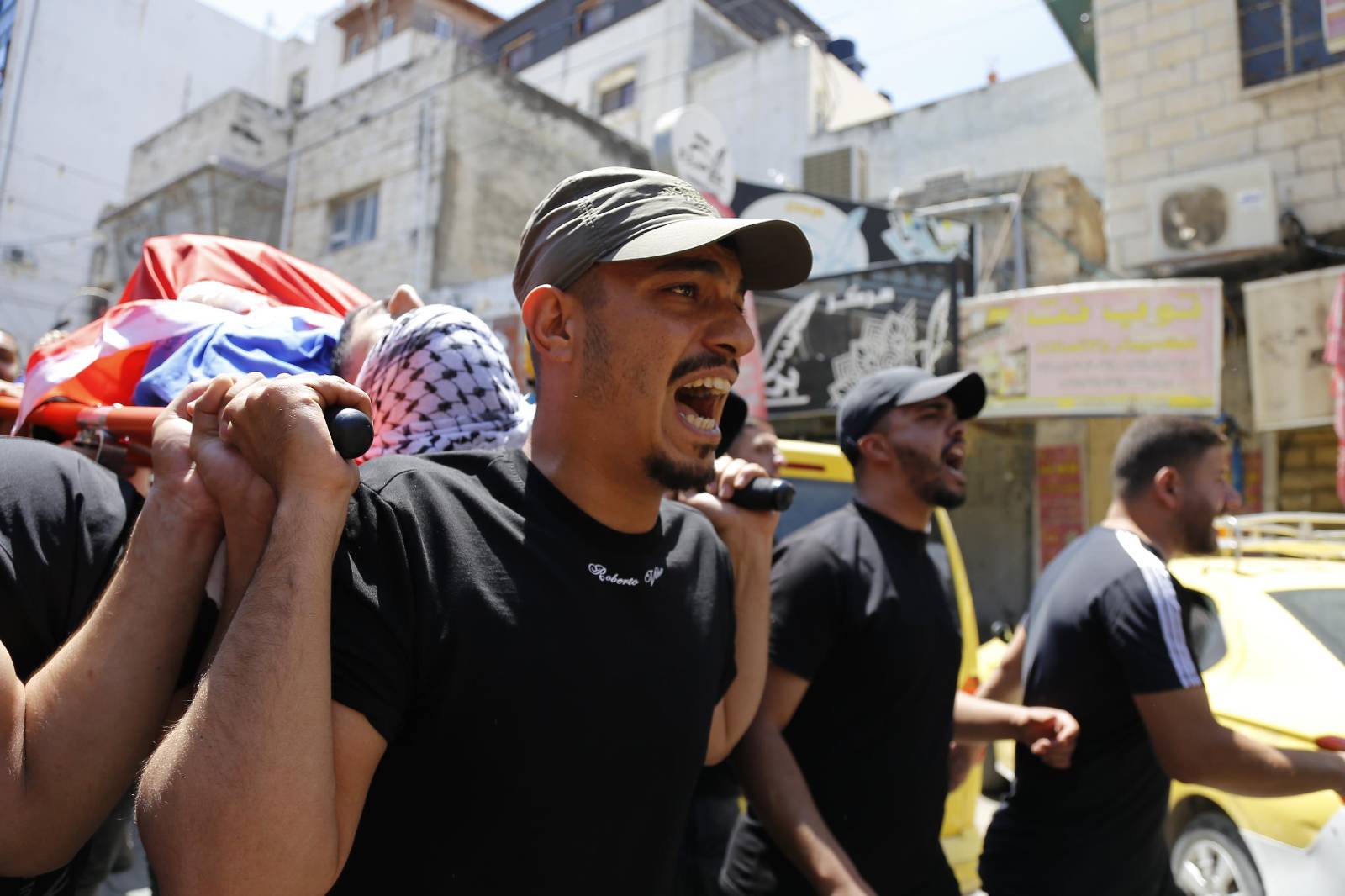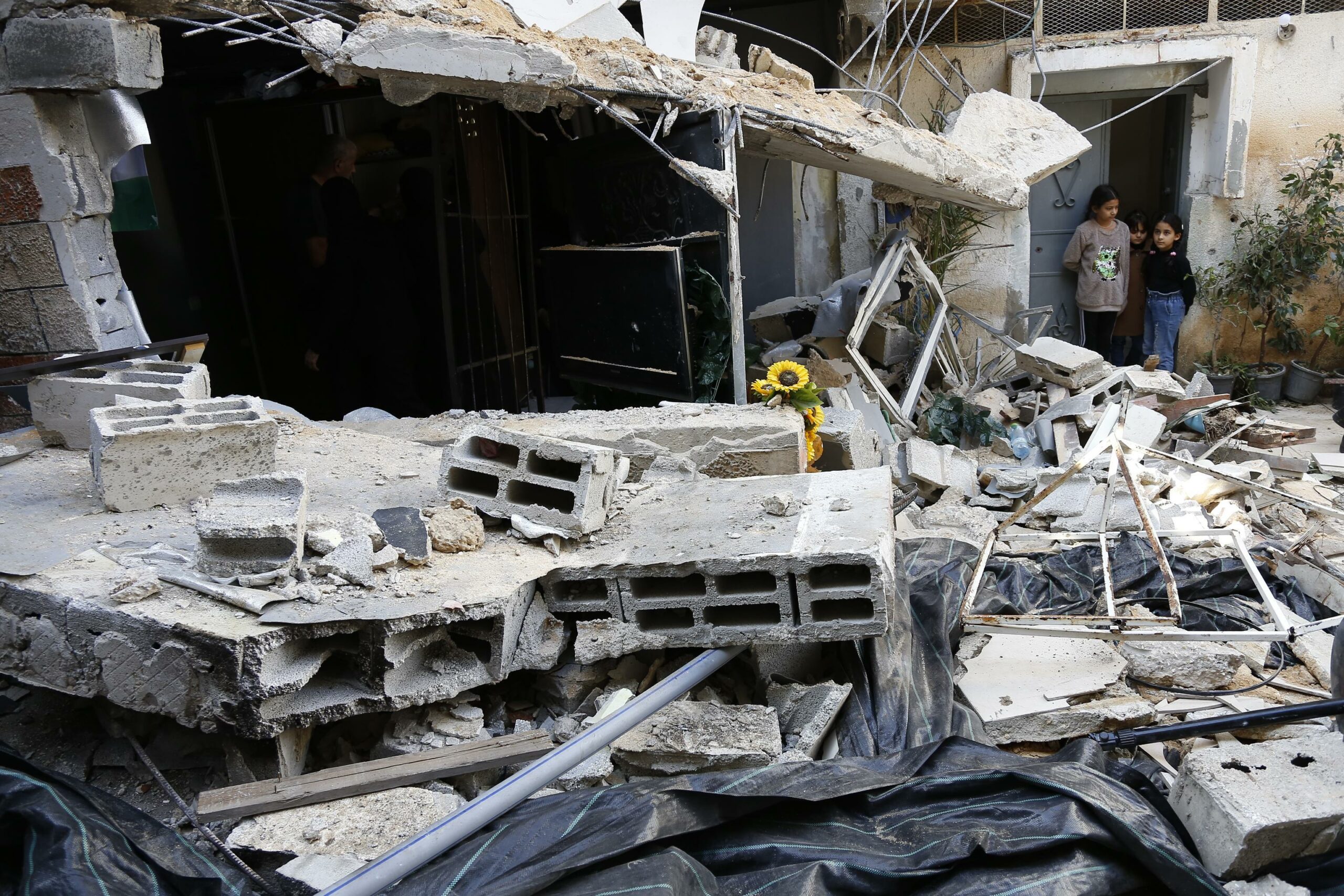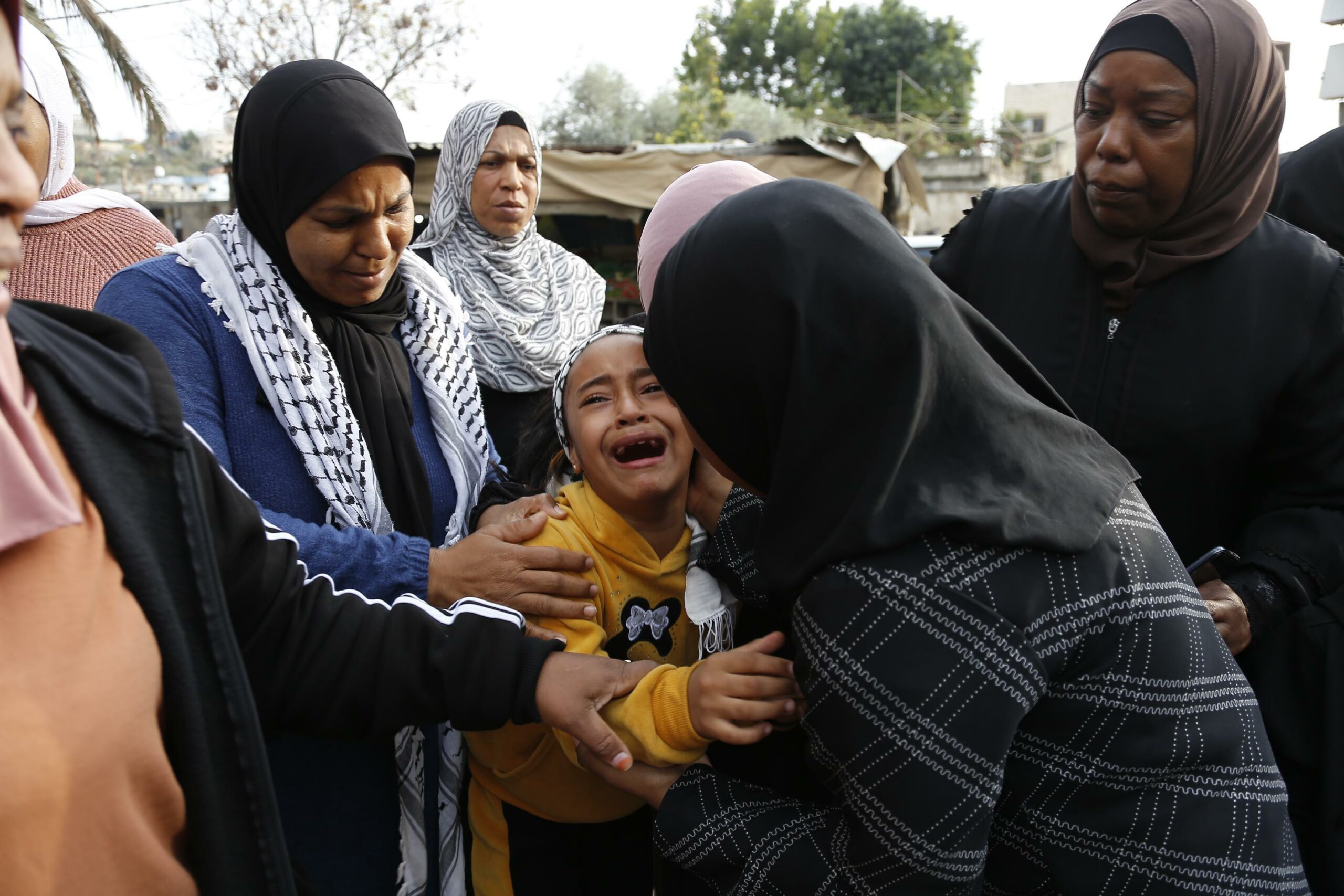Tag: Tulkarem
-
Three martyred and five wounded in Tulkarem
By Diana Khwaelid Three Palestinian men were martyred and more than five Palestinians were wounded during the Israeli occupation’s invasion of Tulkarem. The city of Tulkarm in the northern West Bank has witnessed dozens of incursions by the Israeli occupation forces recently. Since 7th October, the number of martyrs of the city of Tulkarm has…
-
Endless war – Nur Shams refugee camp
By Diana Khwaelid 30 December 2023 | International Solidarity Movement | Tulkarm A new Israeli incursion into the Nur Shams refugee camp continues an endless war of destruction after destruction. On the night of Sunday December 30th dozens of military vehicles, including D9 bulldozers, stormed the city of Tulkarm and the Nur Shams refugee camp…
-
One war in Gaza and another in the West Bank
by Diana Khwaelid 7 December 2023 | International Solidarity Movement | Tulkarem The fire of the war between Hamas and Israel since October 7 has not only burned the civilian population of Gaza. Palestinian civilians in the West Bank have tasted their share of it, too. On December 7, the Israeli occupation forces once…



